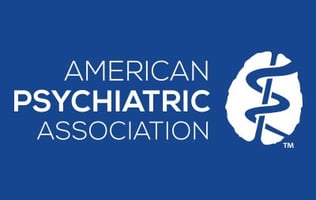Assertive Community Treatment With Police Involvement Leads to Fewer Overall Police Encounters
 Patients with mental illness who received a model of Assertive Community Treatment (ACT) that integrates local police into ACT teams (ACT-PI) had significantly fewer overall police encounters than before their entry into treatment, according to a report in Psychiatric Services.
Patients with mental illness who received a model of Assertive Community Treatment (ACT) that integrates local police into ACT teams (ACT-PI) had significantly fewer overall police encounters than before their entry into treatment, according to a report in Psychiatric Services.Additionally, clients with a history of violence showed a decrease in violent occurrences and an increase in mental health–focused interactions with police. This finding “suggests that ACT-PI program admission might reduce the risk of violent behaviors that can put staff and the public in danger while facilitating police interactions that focus on mental health,” wrote Sean D. Morgan, Ph.D., of the University of Victoria, Canada, and colleagues.
The researchers analyzed data from the Victoria Police Department database on all police occurrences for 448 unique ACT-PI clients between January 1, 2008, and June 30, 2019. They examined differences in five types of police interactions before and after admission to the ACT-PI program: mental health, violence, substance use, emotionally disturbed person, and social order.
Overall, rates of monthly police interactions decreased significantly for individuals after admission to the ACT-PI program, from an average of one occurrence every two months to one occurrence every three months.
Among individual types of police interactions, both social order– and substance use–related interactions significantly declined for non-White individuals while staying similar among White individuals. Emotionally disturbed person encounters decreased to a negligible amount after ACT-PI admission for all participants.
Mental health encounters increased from once every 14 months before ACT-PI admission to once every nine months after admission for White participants but declined slightly among non-White participants—from once every eight months to once every nine months.
Morgan and colleagues said that the reduction in criminal occurrences for non-White clients “may reflect less police bias toward these individuals’ disruptive behaviors once the clients become known to police.”
The researchers added: “The overall reduction in occurrences after ACT-PI program admission suggests that this model does not lead to overpolicing and potentially harmful police monitoring. … Integrating police officers into ACT-PI teams appears to shift officers’ focus from policing to mental health support.”
For related information, see the Psychiatric News report “Stanford Team Examines Intersection of Homelessness, Mental Illness, Police Conduct.”
(Image: Getty Images/iStock/halbergman)





